Matt found his way to design through an unconventional route, initially signing up for a degree in Astrophysics straight after completing his A-Levels. Soon realising that this wasn’t the right pathway for him, Matt returned to the classroom as a science technician, preparing lessons for students. In his spare time, however, Matt was an avid maker.
“I have always enjoyed tinkering,” Matt said. “I was always being ‘handy’, either making signs or furniture. There’s something to be said for looking at what you enjoy doing for fun and developing that interest into a career.”
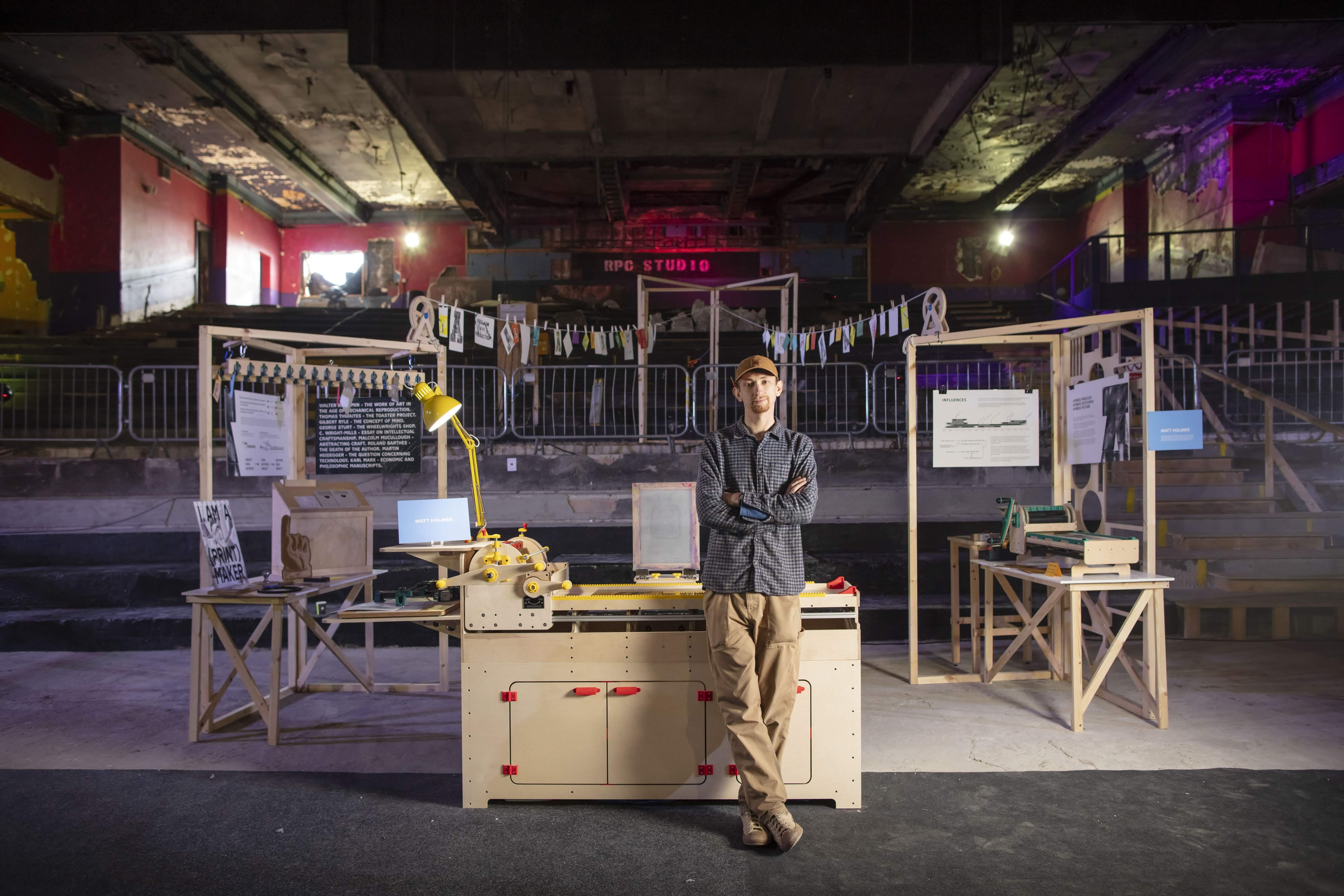
Matt in the Millennium Building, Photo Courtesy of Lloyd Russell, University of Plymouth.
Changing the direction of his career was not a decision that Matt took lightly: “The decision to return to education as a mature student was a big one. I moved across the country from Essex to Devon, which was quite scary. But as a mature student I had a different work ethic to a lot of my peers, and tended to engage with my work quite intensely. Being surrounded by people younger than me taught me that I didn’t have to work quite so manically. In turn, I like to think I taught some of the other students in my group some useful things, like the inevitability of deadlines!”
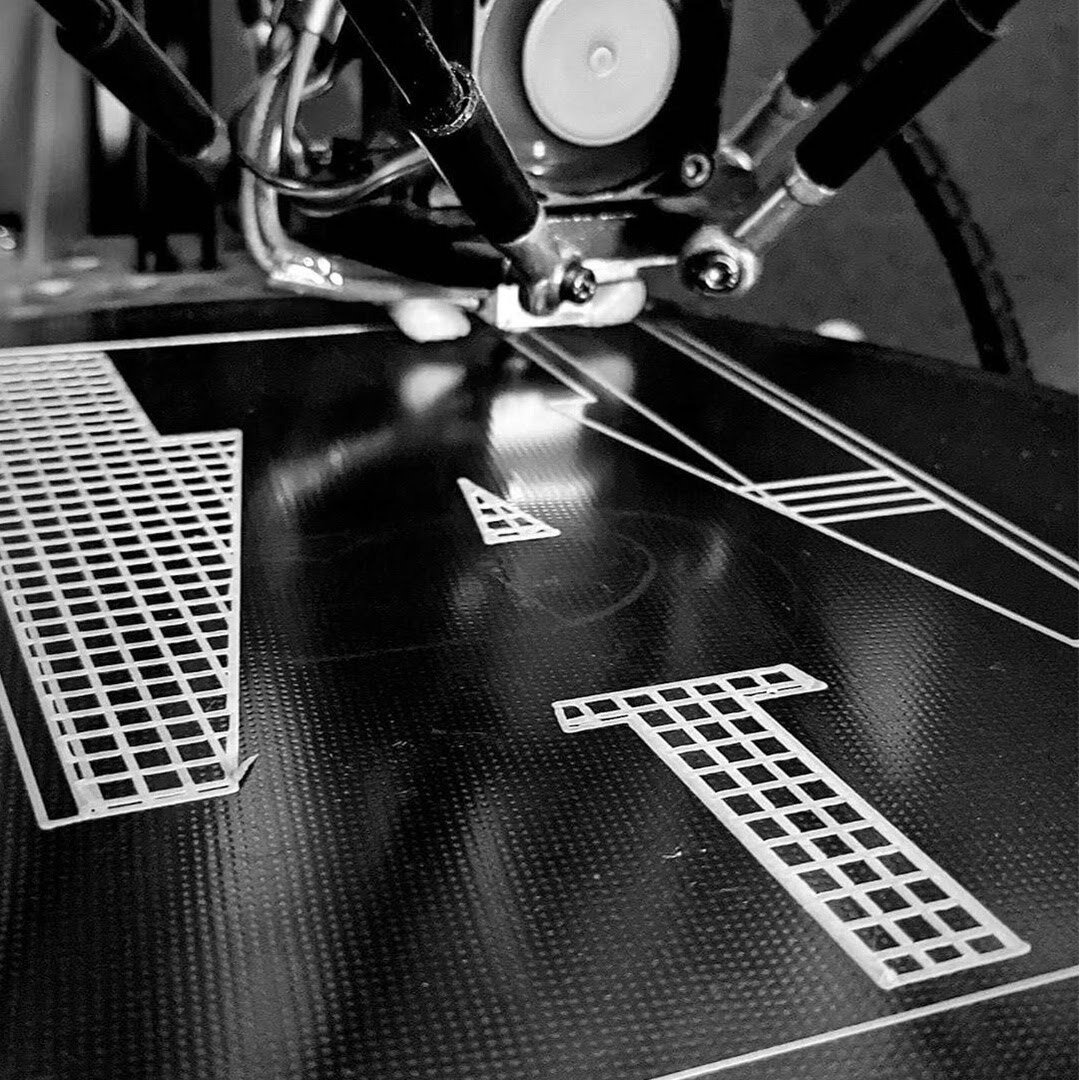
As a lover of big chunky type, Matt is inspired by the work of designers such as Anthony Burrill.
Matt initially thought that his career would lead him towards furniture making. His talents saw him gain a place at The Snowdon Summer School, to learn furniture making from master craftsmen. Surrounded by Chippendale tables and cabinets, Matt saw other students produce pieces using marquetry (the art of applying pieces of veneer to form designs) in traditional patterns, where he interpreted the brief in a different way: “My design was inspired by looking at the carpet and noticing the pattern didn’t quite match up!”.
This appreciation of imperfections became a theme that led Matt’s work towards typography. The discovery of a damaged, forgotten typeface in a workshop led him to consider how he might restore it. “I recognised that the marks and imperfections told a story”, Matt said. His use of modern technologies like 3D-printing, together with legacy techniques, led to a fascination with democratising heritage processes such as letterpress and typesetting.
Matt was in the middle of developing his letterpress equipment when the COVID-19 pandemic first hit, during his BA. “I realised pretty quickly that I wouldn’t have access to all these tools in the workshop, that channelled me into using the tools I had at home, like a simple jigsaw. It forced me to consider the tools other people had around them. I realised how inaccessible these heritage techniques were to others. Without use they die out. It made me ask myself how can I make them accessible to a wider audience?”
The culmination of this work saw Matt successfully create his own letterpress printing press, including the instructions to build it, distilled into an email. “Theoretically I can send this to anyone, anywhere in the world and they will be able to build it. It makes it available to all”. One of the first people Matt sent it to was printmaker Anthony Burrill. “I have always admired his work and to have him respond to me was such a fantastic boost, I couldn’t believe I was having a Zoom conversation with him whilst sat in my shed!”
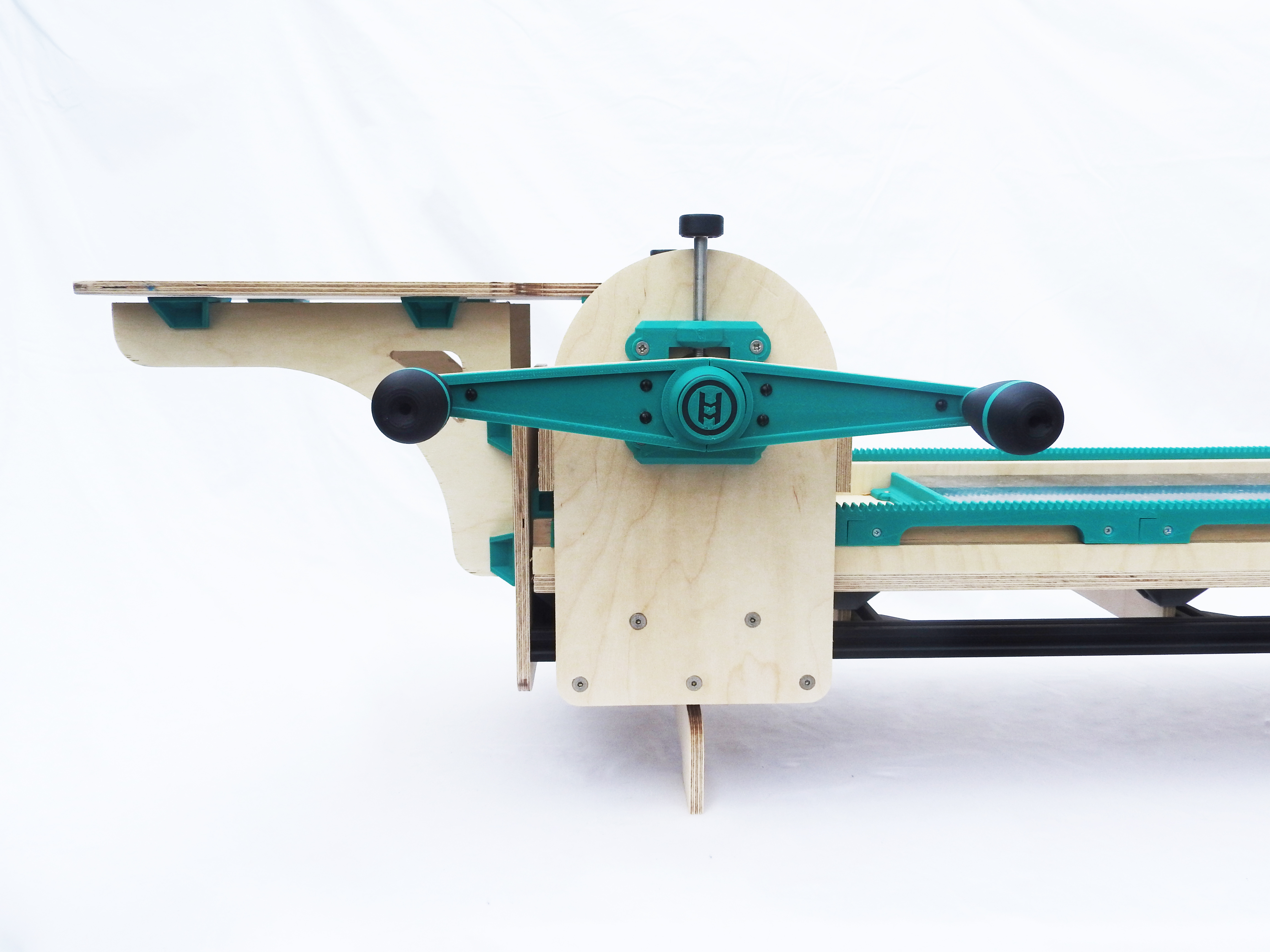
Matt's 3D printed and plywood printing press.
“Heritage is a concept, quite different from History,” Matt said, “which I believe can risk a craft getting locked in, with people saying ‘it’s the way things are done’, which can become a form of gatekeeping. What carpenter would lament the invention of the electric drill? I don’t feel that new technologies change the skill. After all, a potter throwing on an electric wheel is still creating with their hands. I engage with my letter press as I pull the print by hand - and that physicality keeps the magic of the craft in there.”
Matt brings this ethos of democratisation into his work in Fab Lab Plymouth. “I recognise that the Fab Lab space can be intimidating to enter”, Matt admits. “It has big machines that look dangerous and if you’ve never worked in this space before, it’s easy to think that it might not be for you. The reality, however, is that this space is for everyone. I haven’t been working here long, but already we’ve supported BA (Hons) Illustration students to explore how they can use the laser cutter to make tools to work in the printmaking space. There is lots to learn through cross-pollination between disciplines. Come down and discover what you can do! There is so much that computers make possible that you can’t do alone by hand. My favourite slogan for the Fab Lab is ‘We are part of a bigger process’ and I truly believe that.”
In Matt’s personal practice, he continues to add to and modify his letterpress. For Matt, the letterpress has become symbolic of his creative journey, as a designer, a maker and a printmaker. As a Technical Demonstrator in Fab Lab, he’s on hand to help students with their own creative journeys.
South West-based textile designer Jess Strain has combined sustainable fashion with digital design and fabrication skills in her new startup, Ovrbloom, with the support of Plymouth College of Art’s Smart Citizens Programme. Since taking part in the programme, Jess has received a Bronze Creative Conscience Textiles Award and the Young Innovators Grant from Innovate UK and The Prince’s Trust, supporting the development of her business.
Jess, who was born in Ivybridge, Devon, set her sights on the world of fashion from a young age. Her passion grew as she attended Plymouth College of Art’s Saturday Arts Club between the ages of 12 and 15, before Jess pursued an art foundation course and graduated with a First Class Honours in Textiles: Innovation and Design from Loughborough University. The seed for Ovrbloom was first planted in Jess’ final year of university, when she began researching the impact of fabric and textiles on people and the planet.
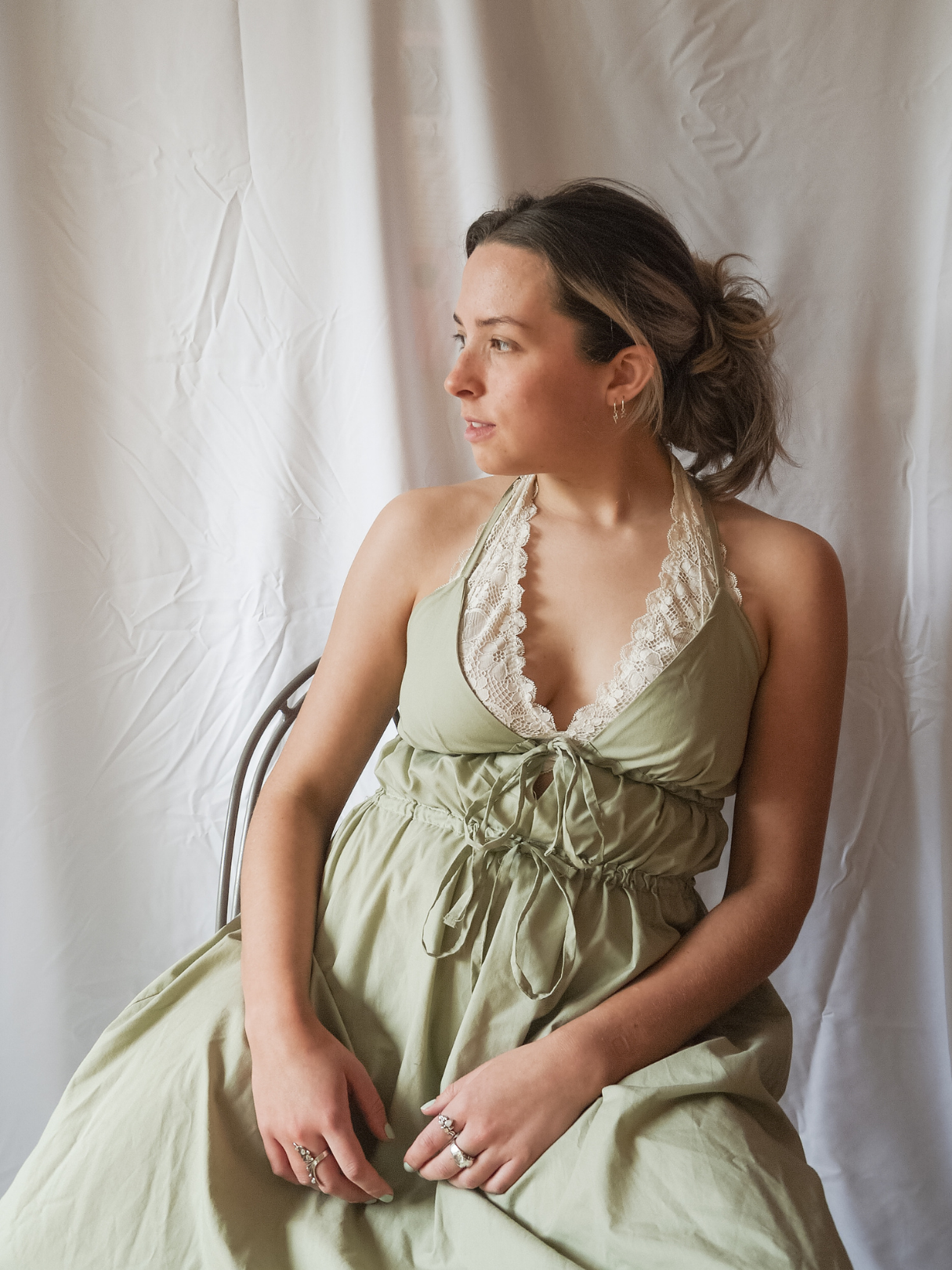
Jess Strain, founder of Ovrbloom (Image Credit - Jess Strain)
Jess said: “I knew as soon as I’d graduated that I wanted to create a business that made a real impact on the world of fashion. Becoming ever more aware of the climate crisis has only heightened the industry’s awareness of the need for disruptive textile design. This is where the idea for my business, Ovrbloom, spawned.”
Ovrbloom is a sustainable accessory brand creating textile accessories and soft furnishings which are naturally dyed and created using waste material. Ovrbloom looks to disrupt the fashion industry with transparent reporting about the manufacturing process for every single product.
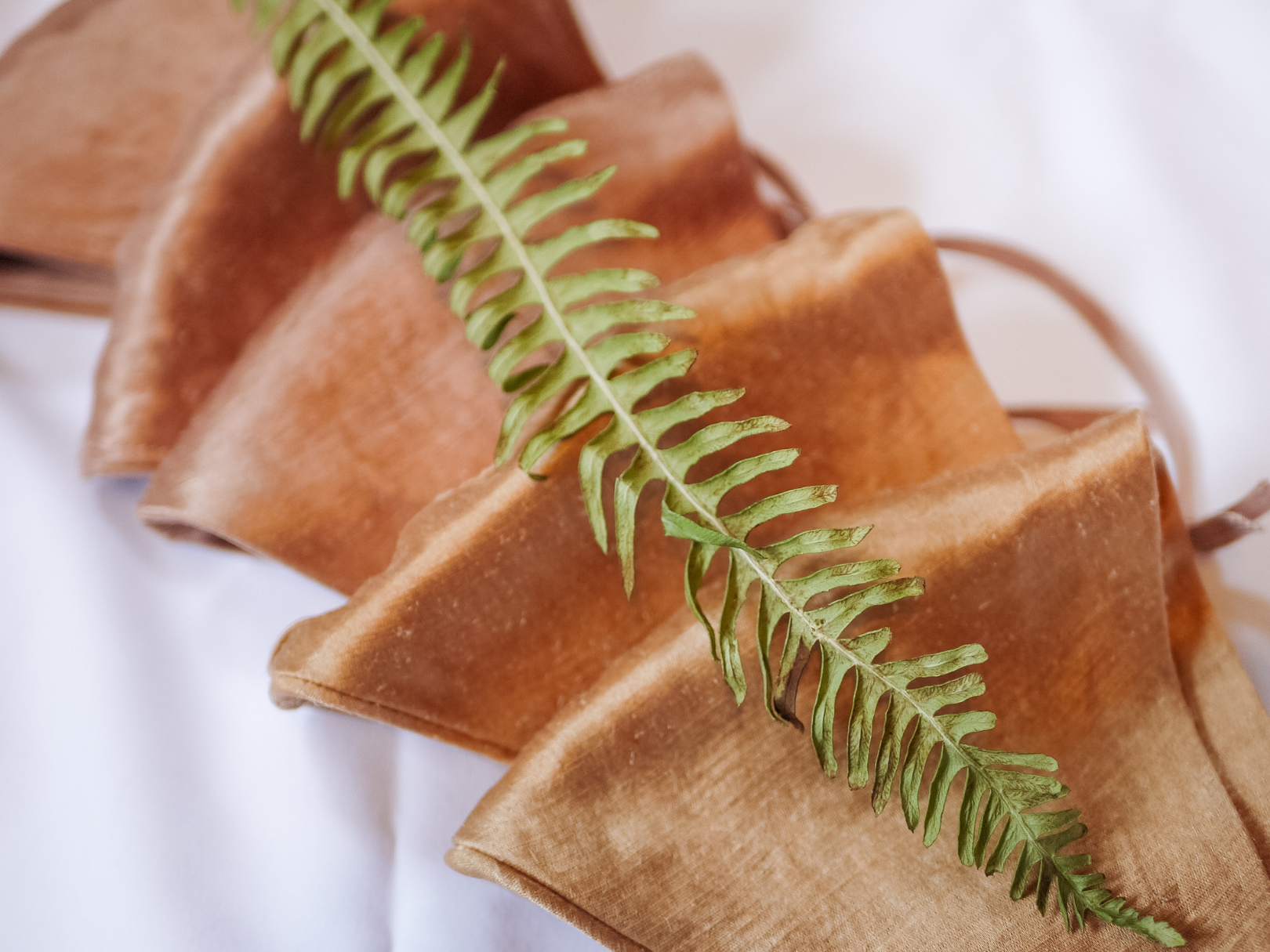
Ovrbloom facemasks (Image Credit - Jess Strain)
Looking to develop skills in 3D design and fabrication, Jess first discovered the Smart Citizens Programme at Plymouth College of Art whilst working as an artist-in-residence at Totnes Art and Design Foundation Course. Jess signed up to the Smart Citizens’ free ‘Design and Make’ training, hosted by Fab Lab Plymouth, where she learned how to produce 3D models using the CAD software, Autodesk Fusion 360, and gained hands-on experience with 3D printers and laser cutters. Using these new skills, Jess designed and 3D-printed a paper press to imprint Ovrbloom’s logo onto product labels, and laser cut her own logo cards.
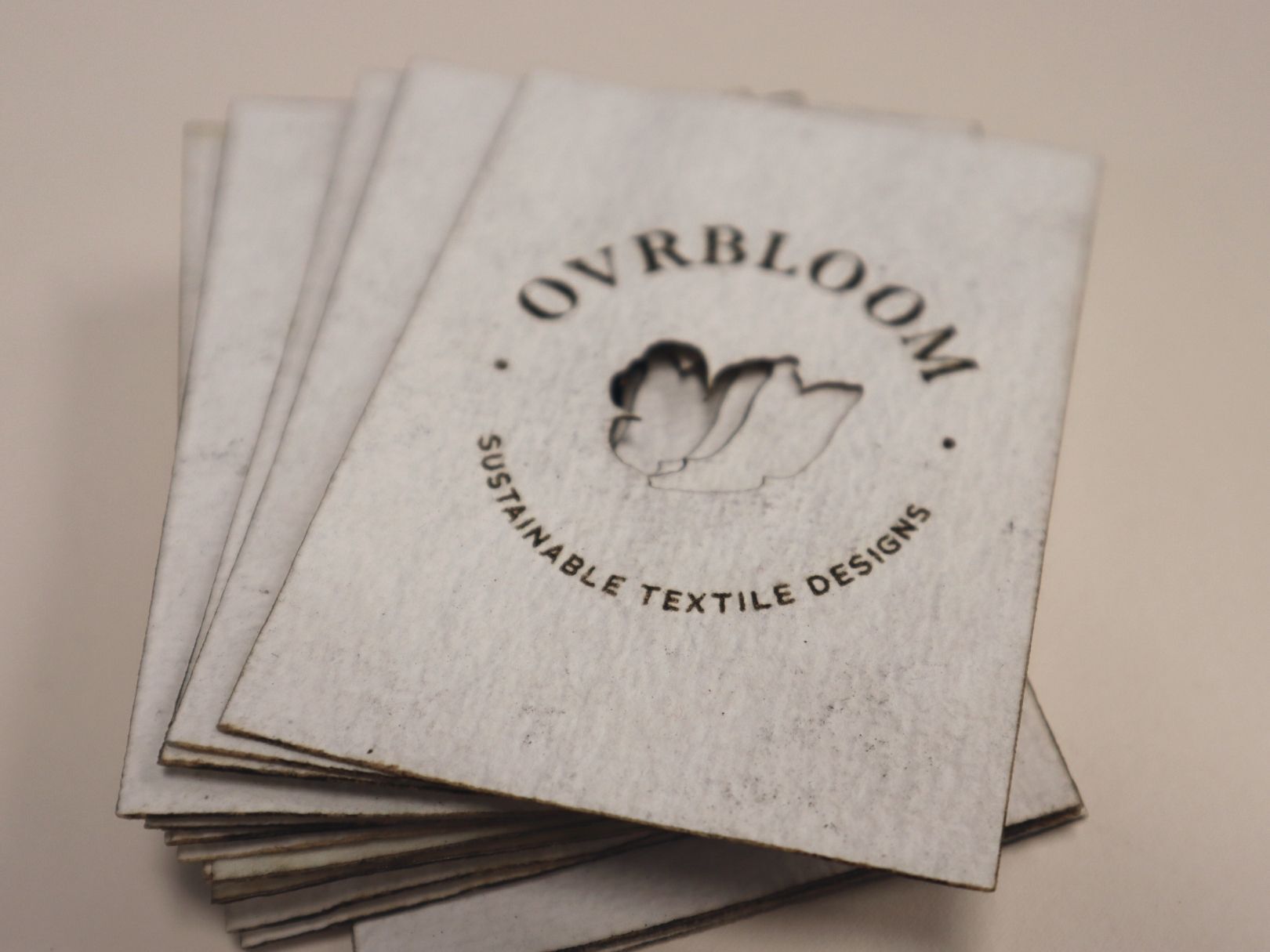
Ovrbloom’s laser cut labels (Image Credit - Smart Citizens Programme)
The Smart Citizens Programme is designed to support local people to develop their skills in digital design and fabrication, and grow their careers and businesses. Their latest free training includes the Autodesk Fusion 360 Certified User Training, supporting participants to develop key CAD skills and gain an industry-recognised accreditation in digital design to progress their careers. They are also hosting a free Tech & Business Bootcamp. Through five days of workshops and mentoring delivered by industry experts, participants will learn key technology, prototyping, and enterprise skills to kickstart their business ideas and make their ideas a reality. Learn more about the Smart Citizens Programme and register for their free training through the Fab Lab Plymouth website.
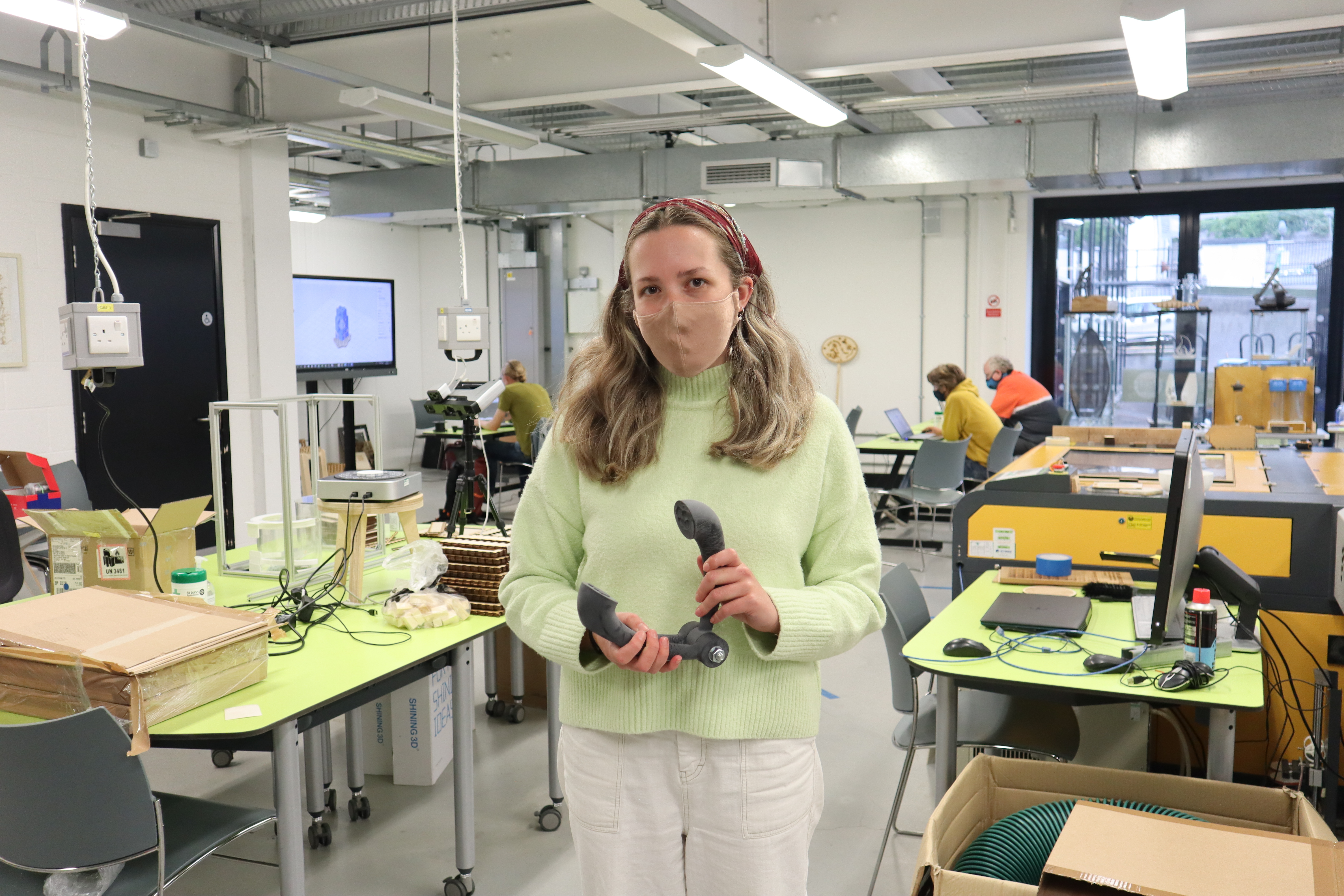
Jess Strain with 3D printed paper press (Image Credit - Smart Citizens Programme)
Jess said: “I absolutely would recommend the Smart Citizens Programme to everyone; I think it’s a great programme for anyone from hobbyists to freelancers and entrepreneurs. The level of tuition is absolutely incredible and I had such a great time learning new skills that will enhance my branding and business.”
Since joining the Smart Citizens Programme, Jess has gone on to win numerous awards. In summer 2021 she was awarded a Bronze Creative Conscience Textiles Award in recognition of her alternative super-fast fashion kimono, which was made from crepe paper. She has also been awarded the Young Innovators Grant from Innovate UK and The Prince’s Trust for Ovrbloom.

Crepe Kimono for which Jess was awarded the Bronze Creative Conscience Textiles Award (Image Credit - Jess Strain)
Excited by the development of her business, Jess said: “The Young Innovators Award has allowed me to take up a studio space in the Bristol Textile Quarter, whilst receiving 1-1 business mentoring which is holding me accountable and allowing me to work quickly towards my business goals of getting my products into manufacture.
“With Ovrbloom, I will create report cards detailing the product supply chain; the aim is to open up a conversation around transparency in the fashion industry and equip my customers with the tools to ask who made their clothes and where in the world they came from. The overarching aim is that consumers will begin to demand more of the high street giants and there will be more honesty and ethics around fashion manufacture.
“I am in the process of my first product iteration and I’m aiming to launch my product along with a supply chain transparency report card before summer.”
You can keep up to date with Jess’ journey on Instagram @ovrbloom or through the Ovrbloom website: https://www.ovrbloom.co.uk/.
The Smart Citizens Programme has been supported by The Department for Digital, Culture, Media and Sport, who fund the Cultural Development Fund, which is administered by Arts Council England.
Archaeological artefacts recovered from shipwrecks in Plymouth Sound that reveal Plymouth’s links to empire, slavery and indenture have been brought to life through 3D scanning at Fab Lab Plymouth, in a collaboration between Plymouth College of Art’s Smart Citizens Programme, local archaeological team the SHIPS Project and internationally-renowned artist and photographer, Dr Mohini Chandra.
Using 3D scanning technology in Fab Lab Plymouth, important maritime objects discovered by the SHIPS team were digitally recorded in intricate detail and reproduced through 3D printing. The objects scanned include a copper manilla - an early trade token for the West Africa trade - recovered from a likely slave wreck in Plymouth Sound (c. 1580-1680) and a copper rag bolt recovered from a Royal Navy ship, HMS Amethyst (1811).
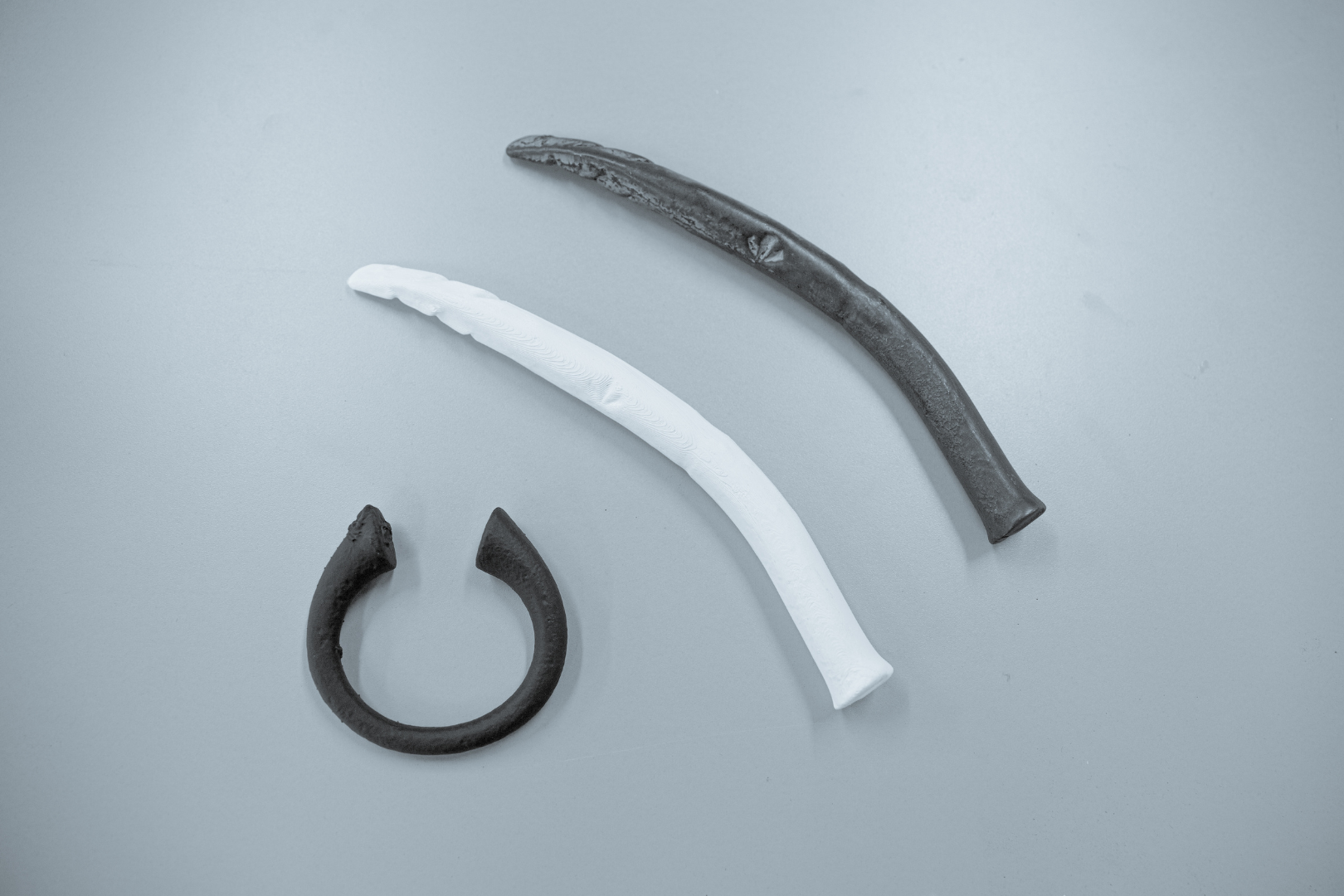
3D printed manilla and rag bolt (left and middle) with original rag bolt (right) (Photo credit - Mia Hollywood)
Through the innovative use of digital fabrication processes, the archaeological finds were recorded for future research and had their stories brought to life, creating accurate 3D printed replicas that can be handled without causing damage to the original artefacts. The SHIPS Project, an independent archaeology research group and community interest company, can now use the 3D prints as an educational tool, allowing the public to physically connect with elements of Plymouth’s maritime histories that were previously hidden on the seabed of Plymouth Sound.
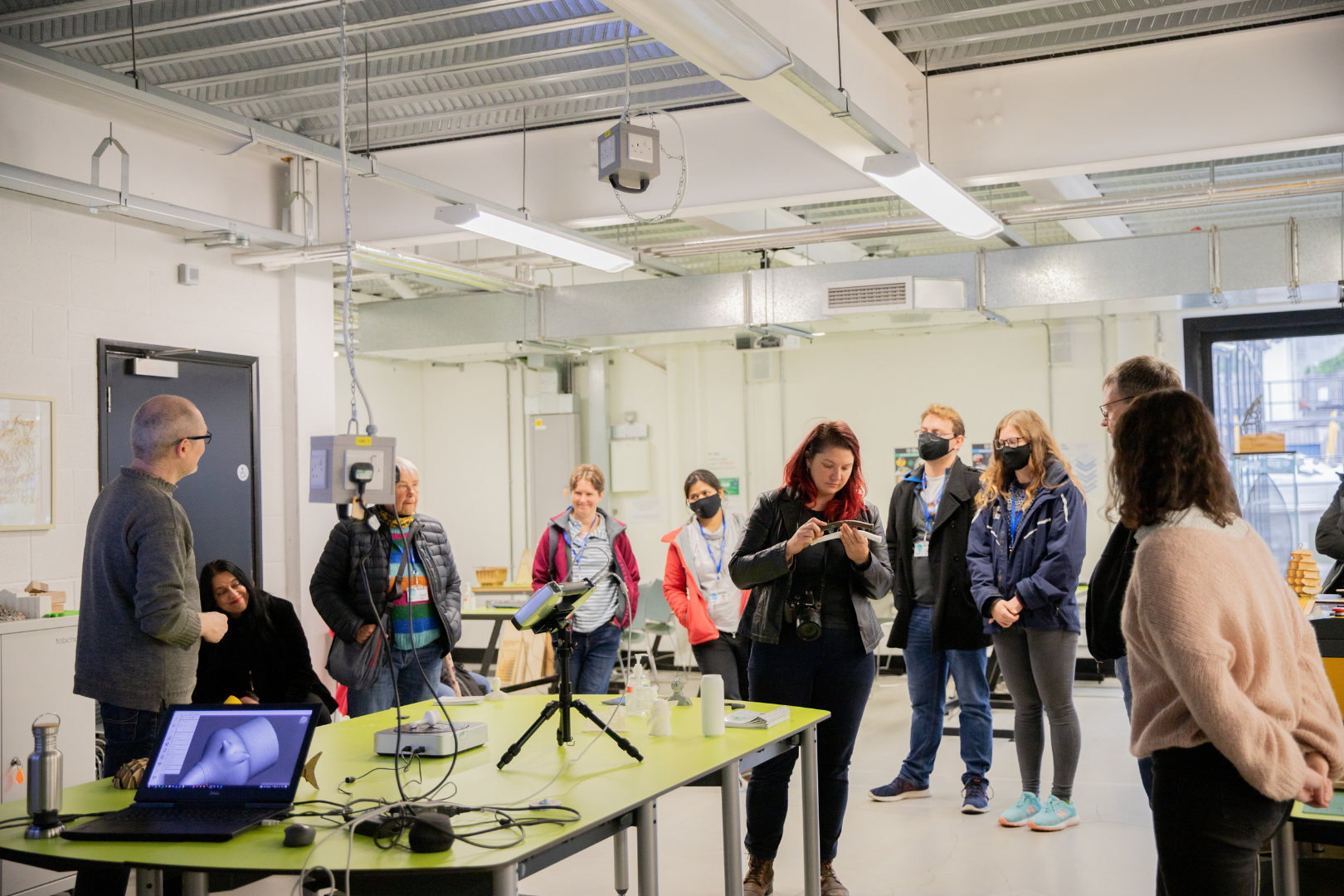
Mallory Haas, Director of the SHIPS Project, handles the 3D printed rag bolt (Photo credit - Mia Hollywood)
Stray Finds
As part of the collaboration between the Smart Citizens Programme, the SHIPS Project and Dr Mohini Chandra, local people were invited to join the Stray Finds event at Plymouth College of Art to view Dr Mohini Chandra’ exhibition Paradise Lost at MIRROR, examine shipwreck artefacts and ‘treasure’ and visit the Fab Lab. Local divers and collectors from the South West were also invited to bring favourite finds along to show and to discuss them with archaeology experts from the SHIPS Project team.
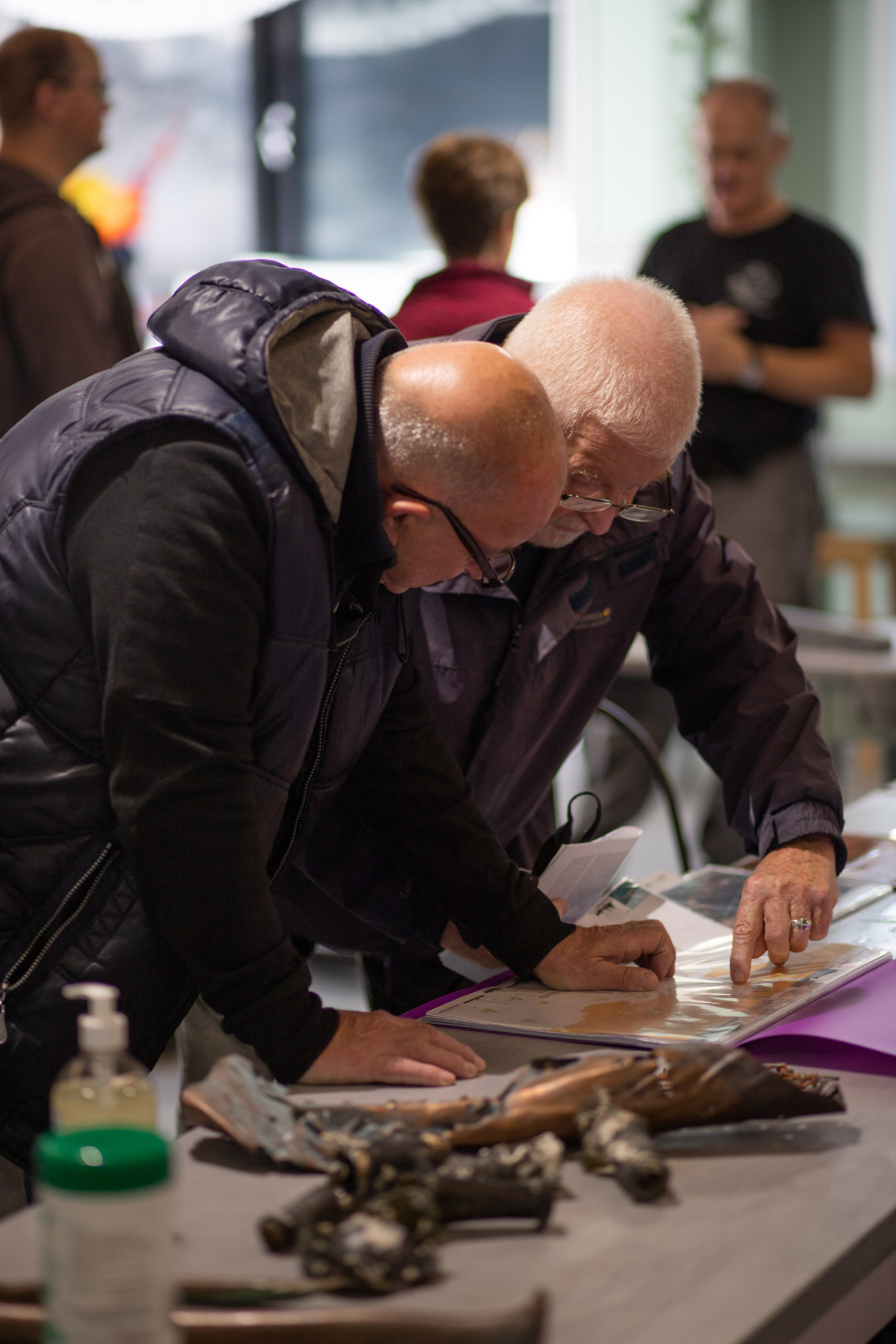
Local people share their archaeological finds (Photo credit - Mia Hollywood)
Mallory Haas, Director of the SHIPS Project, said: “We started the Stray Finds Project so we could see what the diving community has recovered over the last 50 years. The diving community is very active in Plymouth and in the South West, and because the sports divers hold a great deal of knowledge on the shipwrecks and finds recovered from the coast, it's important to record this information before we lose the chance. Many of these finds are common things, like Victorian bottles and bass material recovered from metal wrecks. However, in many divers’ collections is a rare item that may be misidentified, as we have seen many times before. This is how we discovered the only Roman-Greeco lead ancho core to be found in the UK, or several Bronze age stone anchors, and the most amazing roman pottery and amphoras.
“The information these artefacts hold tells the story of the earliest trade with Britain, these artefacts are of great significance and are vital to telling the story of Plymouth as a maritime landscape. By holding events like the Stray Finds day at Plymouth College of Art, we are building a relationship with the diving community and locals who have an interest in history. By holding the event at the College we are expanding the reach events like this can have beyond the diving and maritime community, and involving students and academics that usually may not know this type of culture exists.”
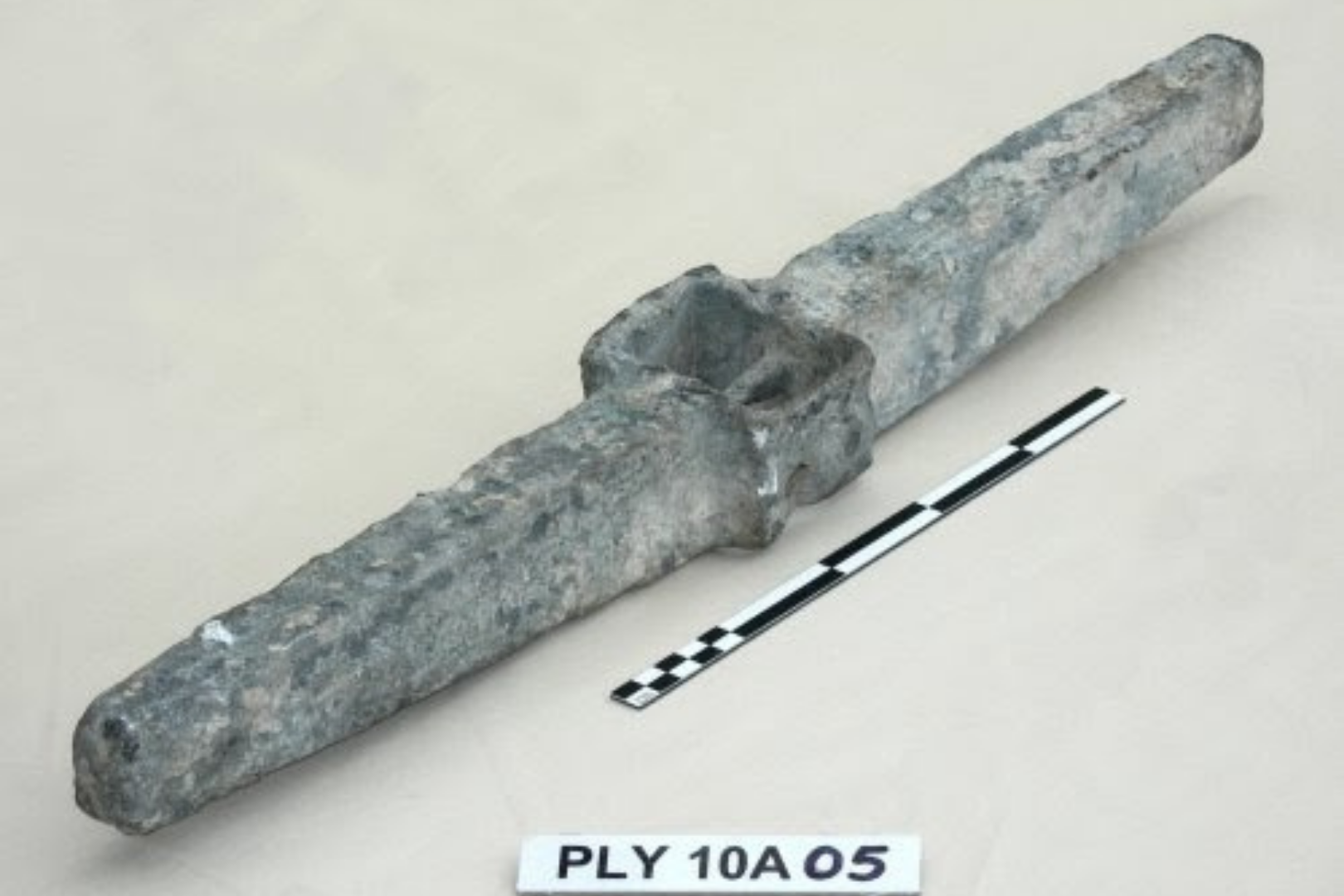
Greco-Roman lead ancho core (Photo credit - SHIPS Project)
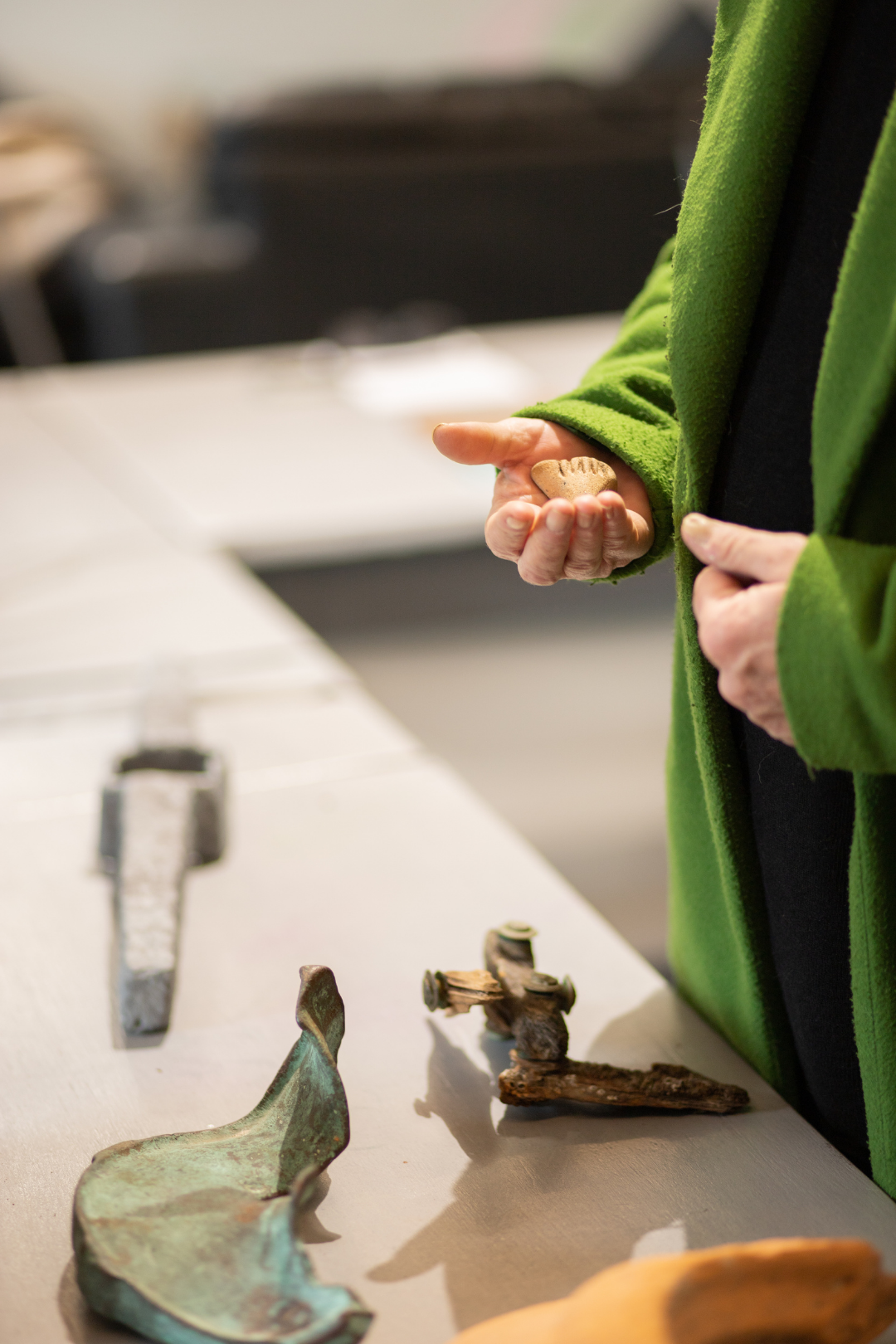
Examining prehistoric pottery (Photo credit - Mia Hollywood)
Paradise Lost explored the history of shipwrecks in the historic naval port city of Plymouth and reflected on the complex movement of people and objects within the colonised world, with a focus on Mohini’s own ancestors’ journeys aboard indenture ships. Alongside a new film work featuring a specially commissioned song, ‘Ei Dubonto Shomoy’, written and performed by Kolkata based archivist and composer Moushumi Bhowmik, as a lament for ‘lost souls’, Mohini also worked with the SHIPS Project to unearth and photograph artefacts from shipwrecks in Plymouth. This work forms part of the SHIPS’ latest Stray Finds Project, which aims to locate and record objects recovered from the sea and make these records accessible through the SHIPS Project website.
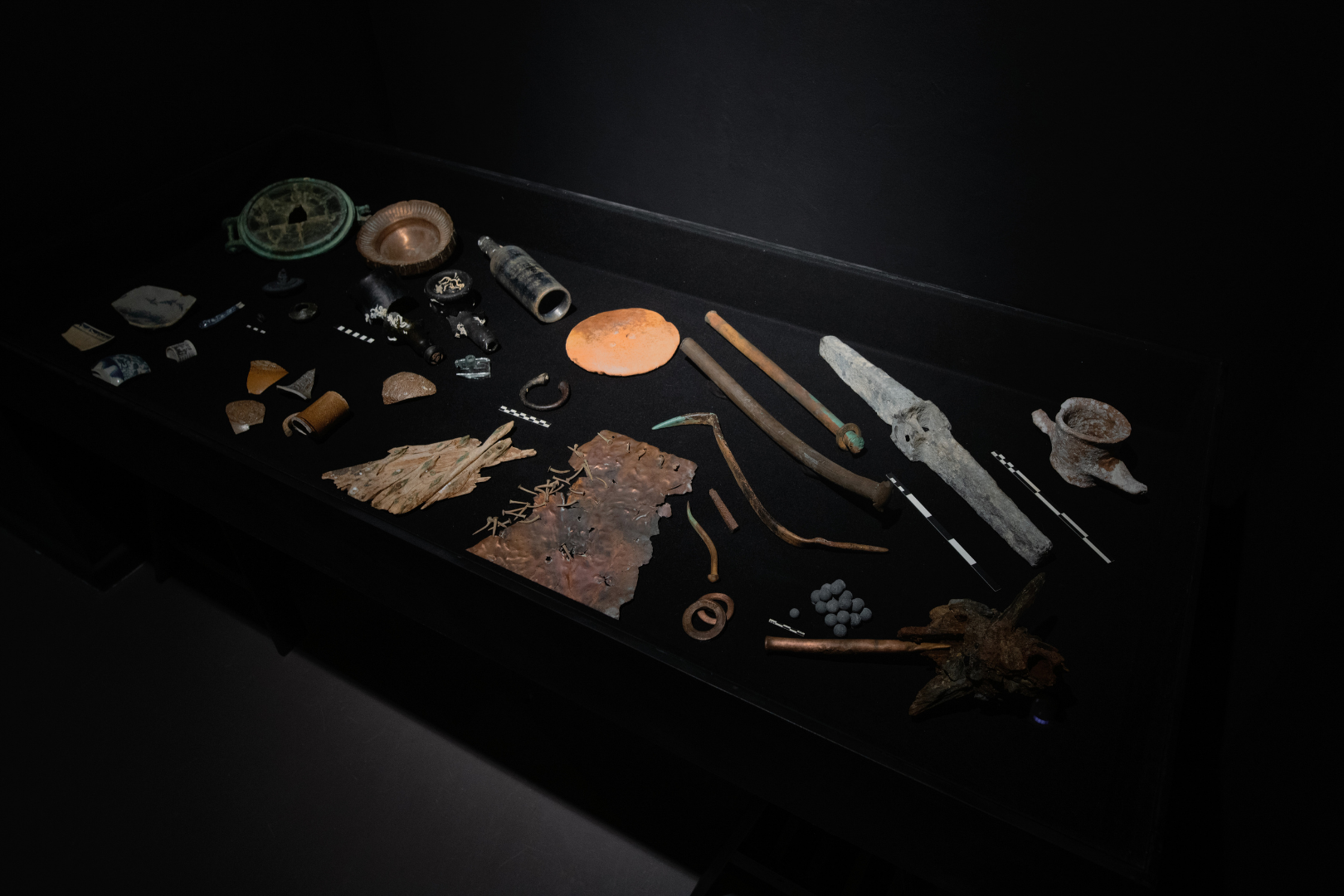
Mohini Chandra, Paradise Lost (2021). The Manilla can be seen in the centre of the display (Photo credit - Dom Moore)
Dr Mohini Chandra, said, “The SHIPS Project's outreach activities include working with the local diving community to study, catalogue and understand artefacts brought up from the numerous shipwrecks in Plymouth Sound and the South West region. The Stray Finds events are an important part of this process, allowing divers to bring in material and have it assessed. The SHIPS Project is then able to glean and record further important first hand information about artefacts and the underwater sites at which they were found. At this event, hosted at Plymouth College of Art, members of the general public and divers were also able to see the exhibition, view and handle previously collected items from the local marine area and talk to the archaeology team. They also visited the Fab Lab to look at the processes involved in mapping and 3D printing from original artefacts such as the 'slave manilla' found in Plymouth Sound, which also featured in the exhibition.”
“This was an important event, bringing arts practice, archaeology and new audiences such as the diving community together at Plymouth College of Art for the first time to explore the different ways that artefacts can be interpreted; both through arts practice and archaeology as well as contemporary technology such as 3D printing, which can make artefacts more accessible to the public. Importantly the SHIPS Project team found a number of unusual and unique items in the material brought forward which they recorded and catalogued on the day.”
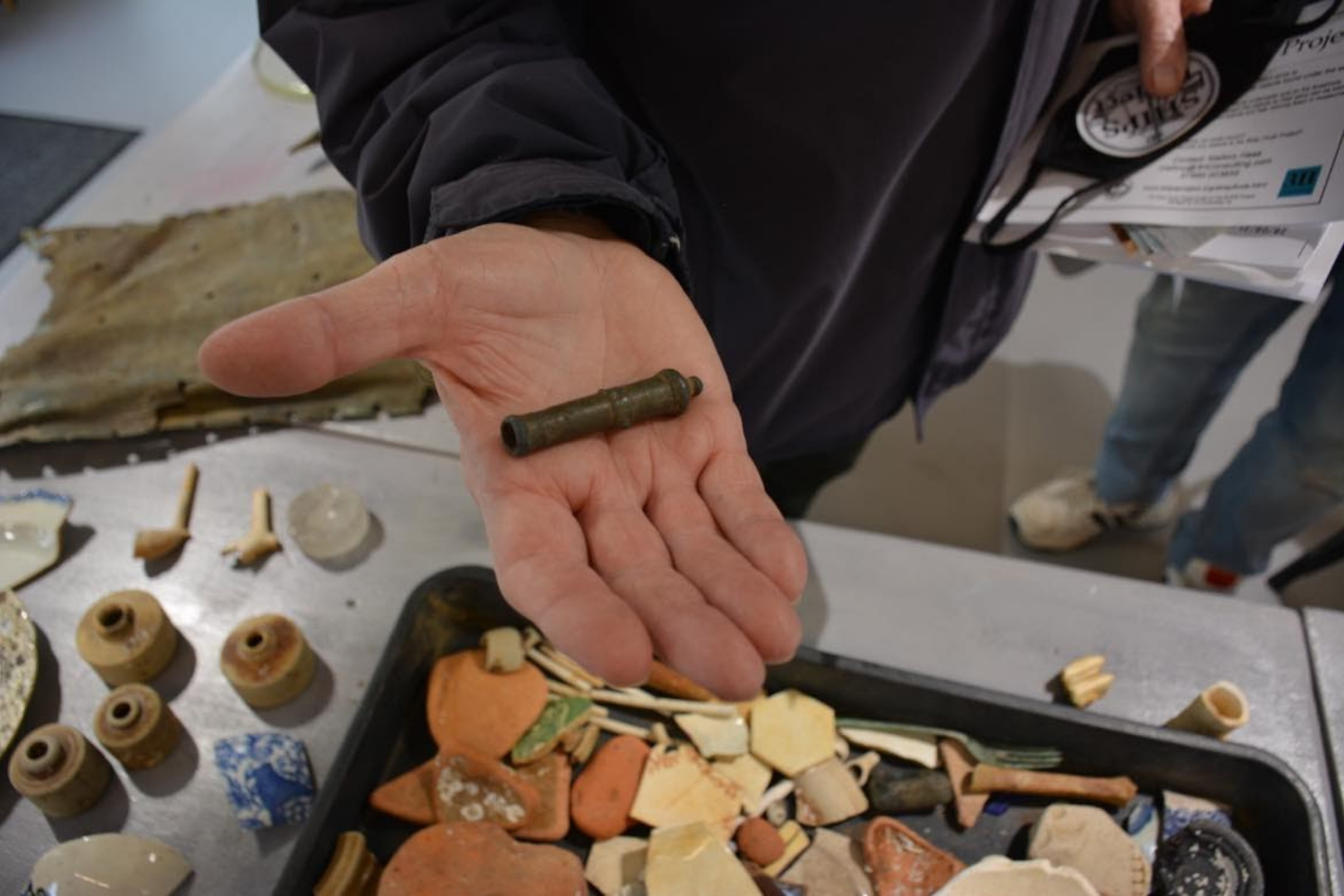
Divers find of a small toy bronze cannon recovered from the old Plymouth Pier site (Photo credit - Mallory Haas)
Participants were also invited to a special tour of Fab Lab Plymouth, to discover the process of 3D scanning and 3D printing and how these modern digital fabrication technologies can be combined with archaeology research to record, protect and reproduce important historical artefacts.
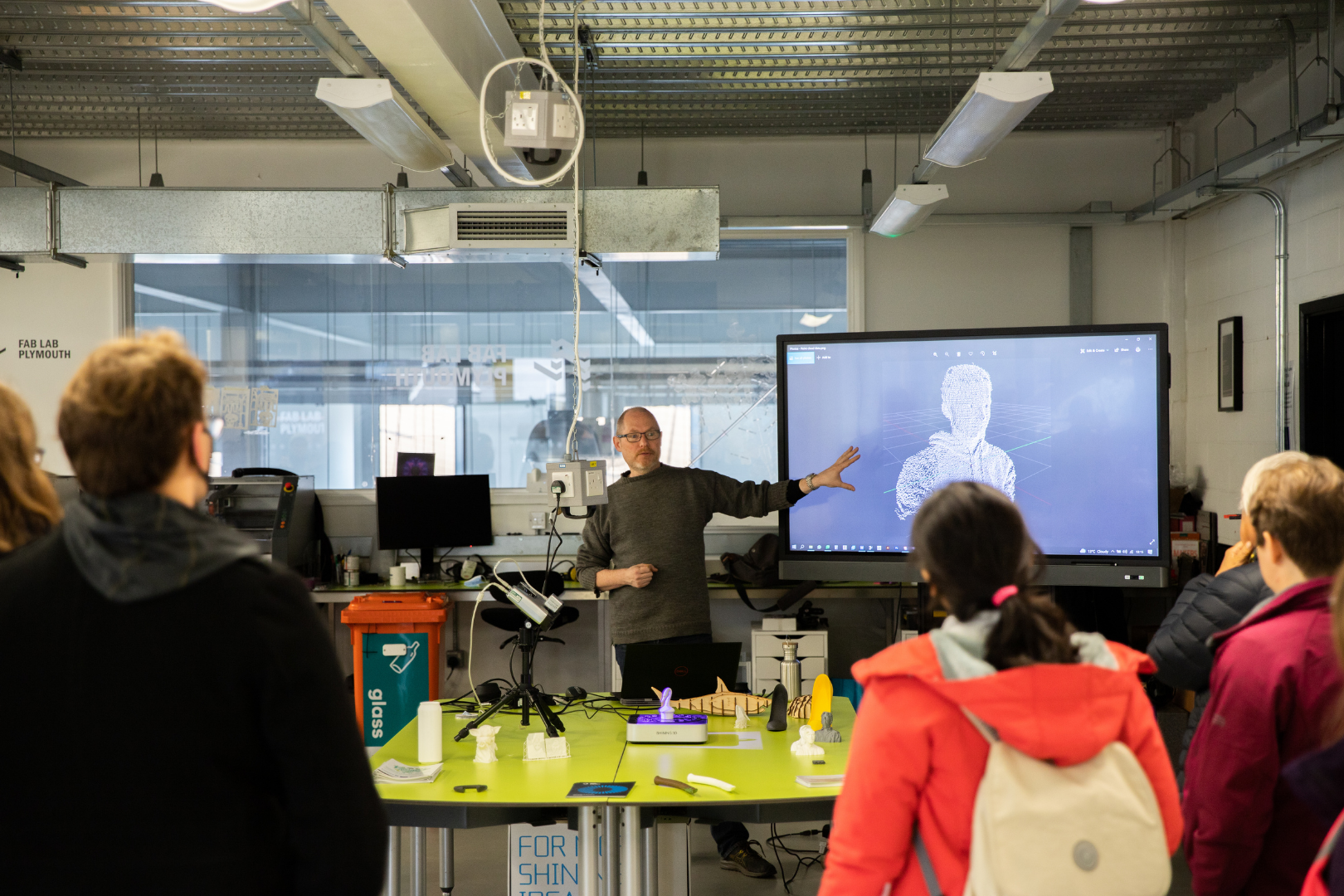
Participants on a tour of the Fab Lab, exploring 3D scanning (Photo credit - Mia Hollywood)
This activity has been supported by The Department for Digital, Culture, Media and Sport, who fund the Cultural Development Fund, which is administered by Arts Council England.
Mohini Chandra’s exhibition ‘Paradise Lost’ was supported by Arts Council England, Plymouth College of Art and MIRROR.